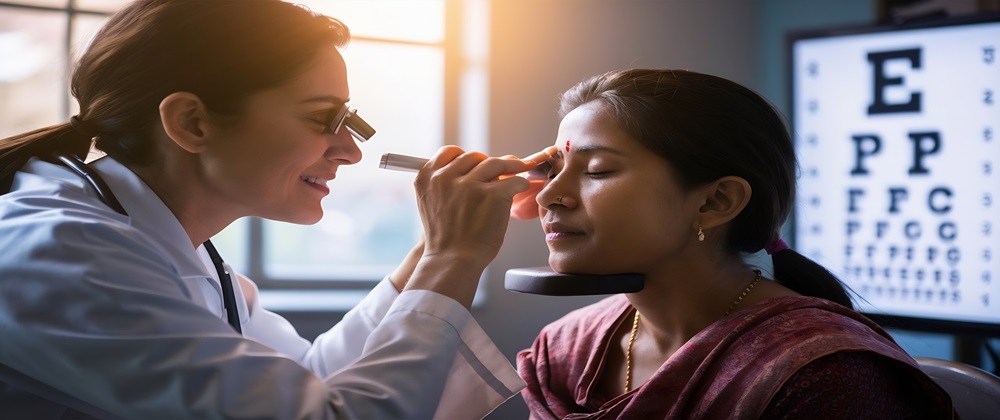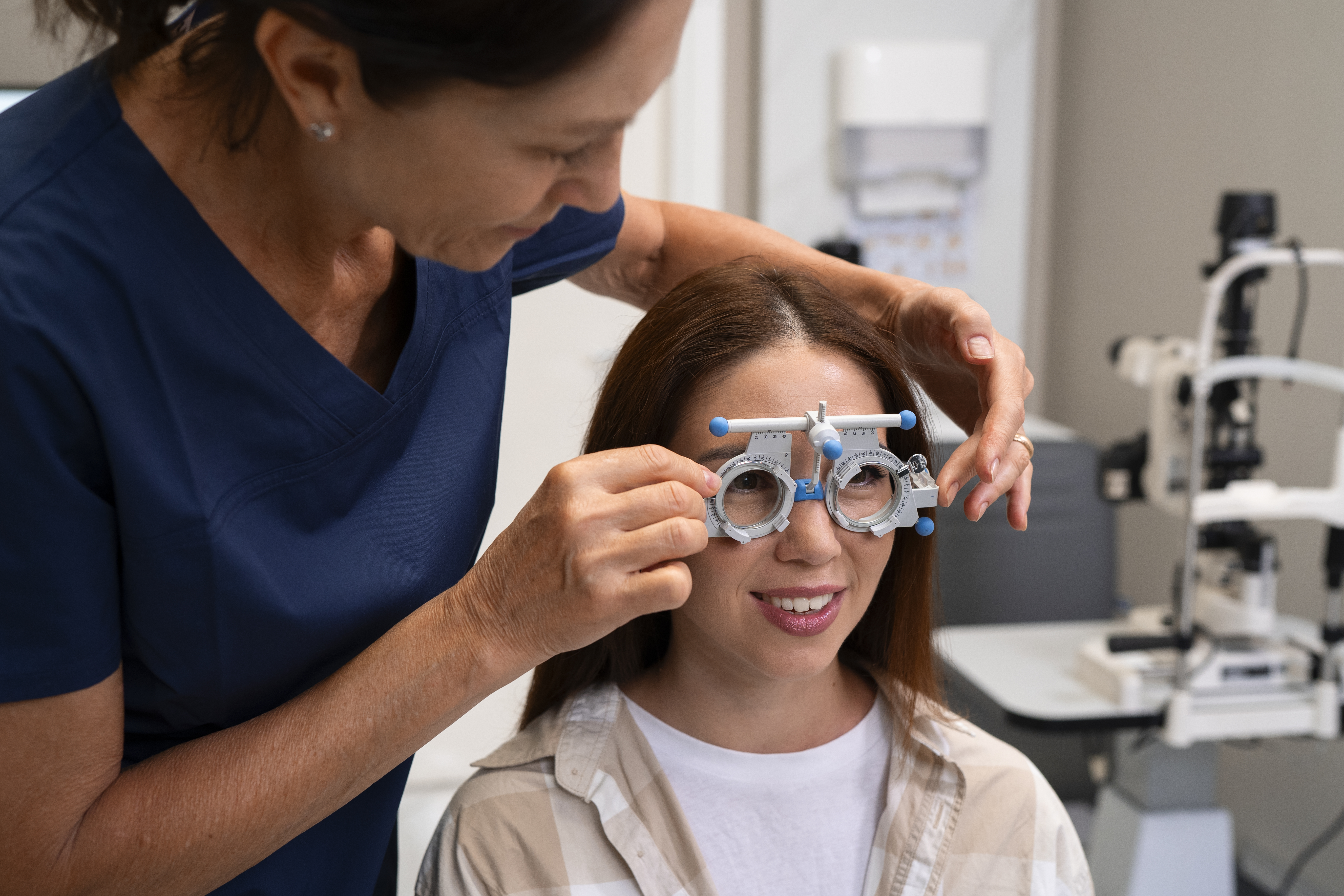Easy Everyday Tips to Keep Your Eyes Healthy

Strong 8k brings an ultra-HD IPTV experience to your living room and your pocket.
Your eyes help you experience life from the beauty of a sunset to the simple act of reading your favorite book. But despite how much we rely on our vision, many people forget to care for their eyes until a problem arises. The good news is, you don’t need drastic changes to protect your vision just a few smart habits.
Here are simple, everyday tips to keep your eyes healthy and strong for years to come. And remember, regular visits to an eye specialist in Agra are a key part of protecting your long-term eye health.
Follow the 20-20-20 Rule for Screen Time
In our screen-heavy world, digital eye strain is becoming more common. If you spend hours on your phone or computer, your eyes may feel dry, tired, or strained. A simple fix is the 20-20-20 rule: every 20 minutes, look at something 20 feet away for 20 seconds. This allows your eye muscles to relax and reduces fatigue from prolonged screen use.
Protect Your Eyes from UV Rays
Just like your skin, your eyes are vulnerable to damage from ultraviolet (UV) rays. Too much sun exposure can increase the risk of cataracts and age-related macular degeneration. Wear sunglasses that block 100% of UVA and UVB rays even on cloudy days. If you already wear glasses, ask your eye specialist about prescription sunglasses or UV-protective lenses to stay safe in the sun.
Eat a Vision-Friendly Diet
A healthy diet supports your overall wellness and that includes your eyes. Nutrients like lutein, zeaxanthin, omega-3 fatty acids, vitamin C, and zinc all play roles in maintaining good eye health. Try to include leafy greens like spinach and kale, colorful vegetables like carrots and sweet potatoes, fatty fish like salmon, and fruits such as oranges and berries. These foods help protect against conditions like cataracts and macular degeneration.
Stay Hydrated to Prevent Dry Eyes
Dry eyes are more common than you might think and can lead to discomfort, irritation, and blurry vision. One of the easiest ways to prevent this is to drink plenty of water throughout the day. When you’re dehydrated, your tear production drops, and your eyes can become dry and gritty. Keeping your body hydrated helps your eyes stay lubricated and healthy.
Practice Good Hygiene
Many eye infections are caused by bacteria or irritants transferred from your hands. Avoid rubbing your eyes, especially with unwashed hands. If you wear contact lenses, always wash your hands before handling them, clean your lenses properly, and store them in fresh solution. Good hygiene is a simple but powerful way to avoid redness, irritation, or more serious eye conditions.
Adjust Your Digital Devices
If you spend a lot of time on screens, making small adjustments can protect your vision. Set your screen brightness to match the lighting in the room. Increase the font size if you find yourself squinting. Using blue light filters, especially in the evening, can help reduce digital eye strain and improve sleep quality. If you still feel eye discomfort, consult an eye specialist for a screen-use prescription or tips tailored to your situation.
Get Enough Sleep Every Night
Lack of sleep affects your entire body including your eyes. Not getting enough rest can lead to dry eyes, twitching, puffiness, and blurred vision. Sleep gives your eyes the time they need to repair and refresh. Aim for 7 to 8 hours of good quality sleep each night to help your eyes feel energized and clear in the morning.
Stay Physically Active
Exercise benefits your eyes by improving blood circulation and reducing the risk of health conditions like diabetes and high blood pressure both of which can lead to serious eye issues. Even simple activities like walking, stretching, or cycling help boost eye health by increasing oxygen supply and promoting healthy vision.
Visit an Eye Specialist Regularly
The most important step in keeping your eyes healthy is scheduling regular eye exams. Many serious eye diseases such as glaucoma, cataracts, or diabetic retinopathy develop slowly and without early symptoms. Only a trained eye specialist can detect these conditions early and begin treatment before vision loss occurs.
Even if your vision feels fine, don’t skip your routine eye checkups. Your eye specialist can also help update your prescription if needed, monitor changes over time, and offer personalized advice based on your lifestyle and medical history.
Conclusion: Protecting Your Eyes Starts with Simple Habits
Your vision is one of your most valuable senses, and protecting it doesn’t have to be complicated. By following simple steps like resting your eyes during screen time, wearing sunglasses, staying hydrated, eating well, and getting enough sleep you can keep your eyes healthy and sharp.
Most importantly, don’t wait for problems to appear. Make it a priority to see an experienced eye specialist regularly. Their expertise can help detect issues early and guide you toward the right care for your eyes.
Note: IndiBlogHub features both user-submitted and editorial content. We do not verify third-party contributions. Read our Disclaimer and Privacy Policyfor details.







